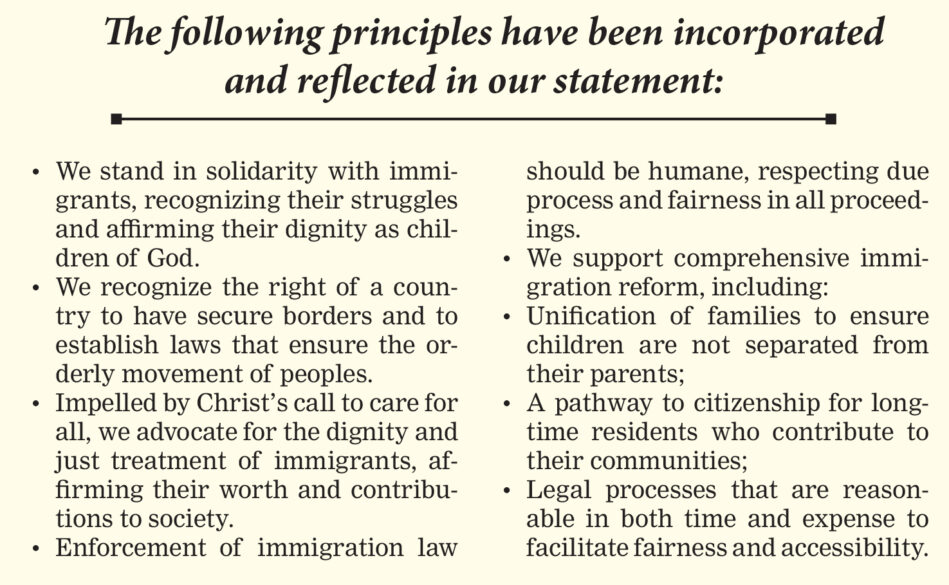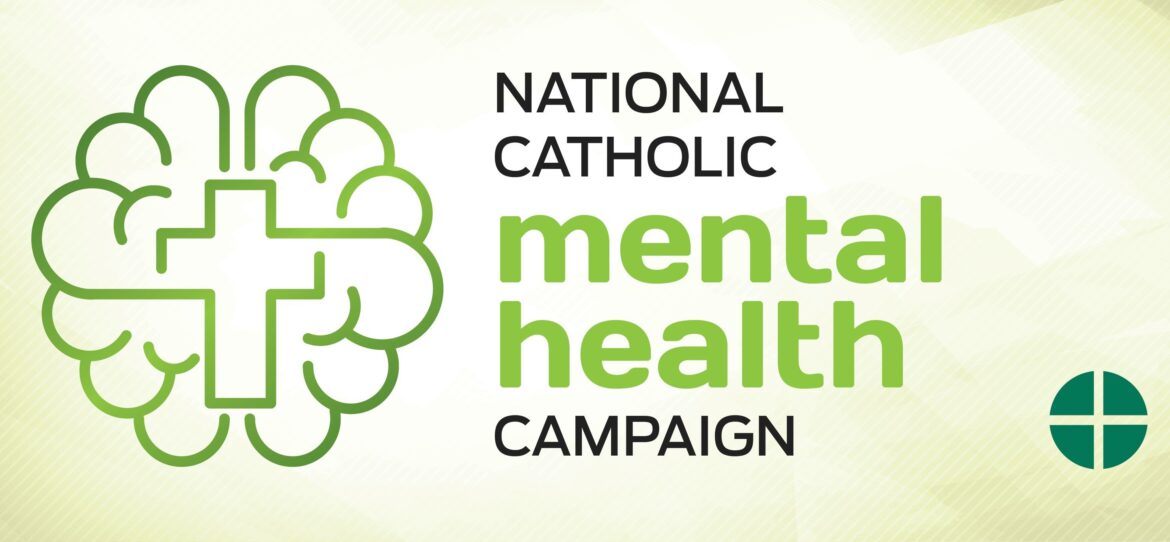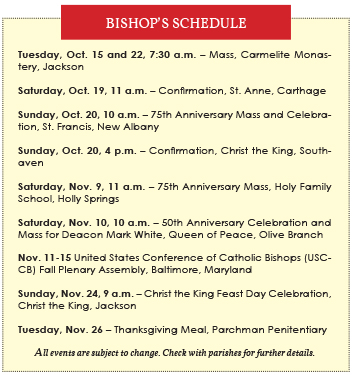As Bishops of the Province of Mobile, encompassing Alabama and Mississippi, we feel called to speak to the pressing issue of immigration in our nation and in our province. Our faith compels us to view each human being as a child of God, endowed with dignity and worth, and our nation’s history reminds us of the transformative power of hope and opportunity.
America’s beauty and genius have long been the result of doors open to those yearning for a better life for their families, those longing to “breathe free,” and those seeking safety, security and liberty. This openness has enriched our amazing society, strengthening the fabric of our communities and renewing the spirit of the American dream for new and future generations. Even in Alabama and Mississippi, many of our civic and faith communities are experiencing growth and vibrancy because of immigrants who long to create a better life for themselves and their families, while experiencing a taste of opportunity and freedom.
At the same time, we recognize that nations are sovereign entities with the right and responsibility to establish immigration laws and policies that protect their citizens and ensure the orderly movement of peoples at their borders. A just and compassionate approach to immigration must balance respect for these laws with the imperative to uphold the dignity of every person including their dreams and noble aspirations.
We call for respect and understanding toward those who find themselves in our country due to a broken immigration system. Many have come seeking a refuge from poverty, violence, dictatorships, or persecution. As a nation, we must make accommodations to keep families together, ensuring that children are not separated from their parents. Due process must be afforded in the processing of immigration claims, ensuring fairness and justice for all especially regarding time and expense. Furthermore, we must presume goodwill for those who strive to work within our system, improve their lives, and contribute to the unique tapestry that is America.
Immigration reform is not only a legal issue but also a profoundly moral one. As Catholics and as Americans, we are called to stand in solidarity with the vulnerable, advocating for policies that reflect the values of compassion, justice, and mercy. Impelled by Christ’s call to care for all, we advocate for the dignity and just treatment of immigrants, affirming their worth and contributions to society. We urge lawmakers, community leaders, and all people of goodwill to engage in this issue with the seriousness and humanity it deserves.
May we, as a nation, continue to welcome the stranger with open hearts, honor the rule of law with integrity, and strive always to be a beacon of hope and welcome for those seeking a better tomorrow.
In Christ,
Most Reverend Thomas J. Rodi
Archbishop of Mobile
Most Reverend Steven J. Raica
Bishop of Birmingham
Most Reverend Joseph R. Kopacz
Bishop of Jackson
Most Reverend Louis F. Kihneman, III
Bishop of Biloxi
Bishops of the Province of Mobile





